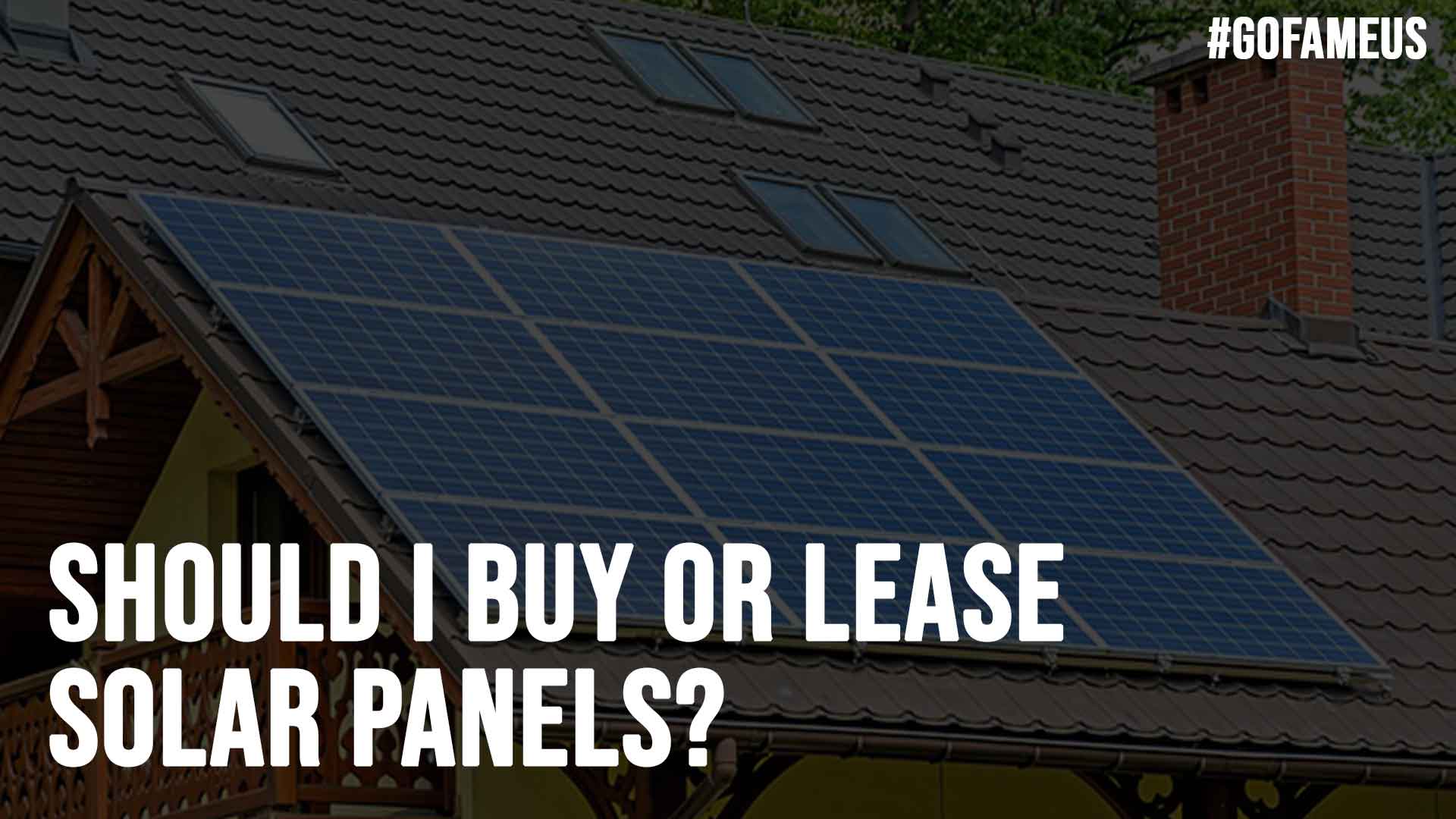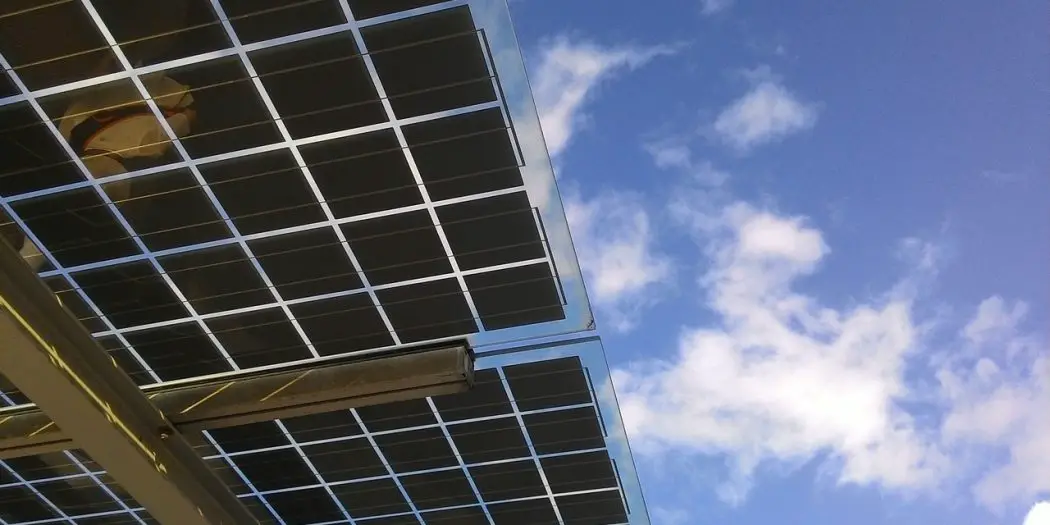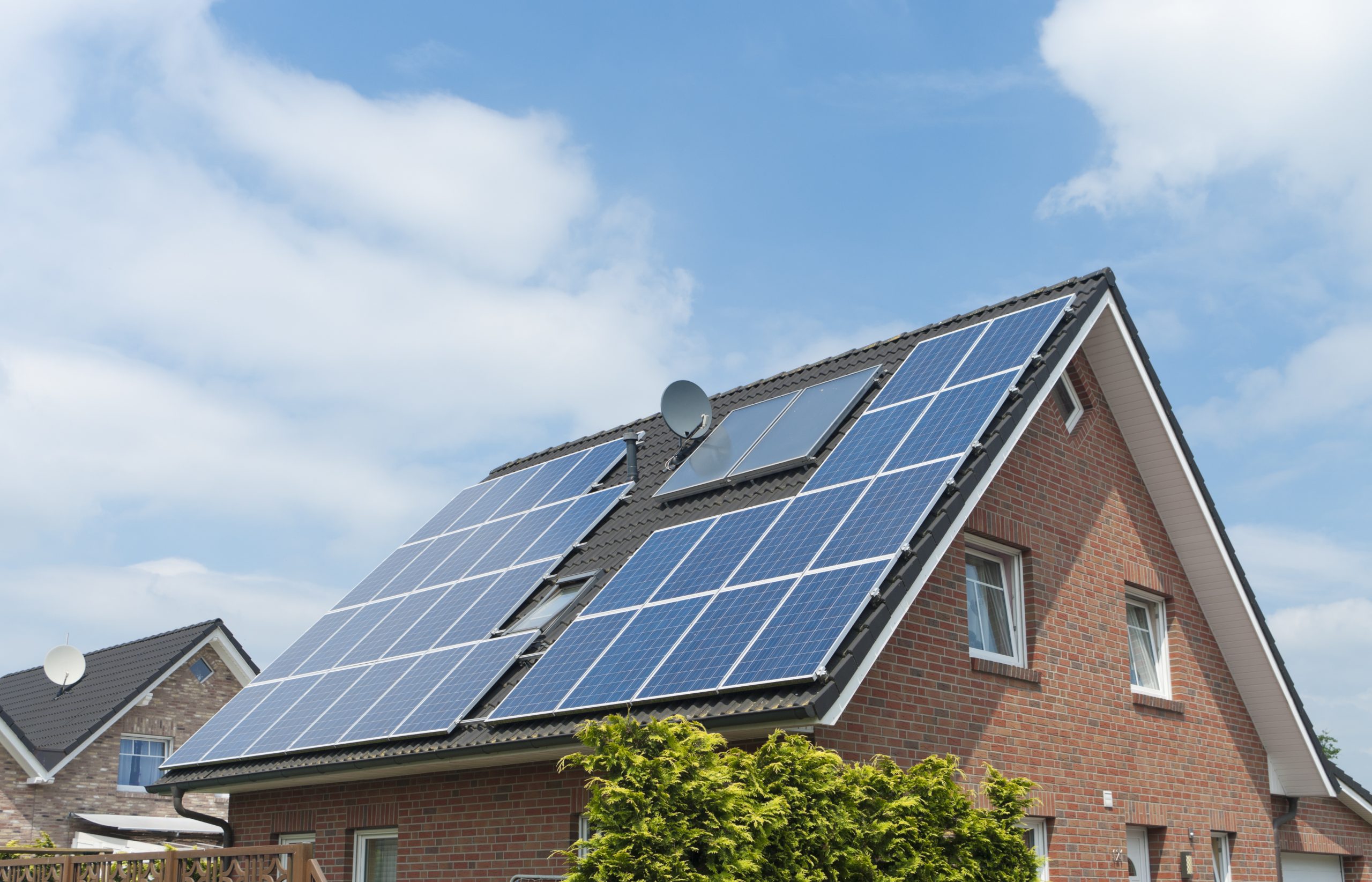No Tax Credits And Incentives
The solar company gets the tax credits that typically go to the homeowner. Even if they use those tax credits to lower your payments and pass along some of the savings, theyre still going to keep some of it for themselves.
This monetary benefit is one of the biggest reasons people go solar, as it can help lower the cost of going solar significantly.
Leasing Solar Panels Vs Buying Solar Panels
Earlier generations of solar panels were expensive, so leasing them was a more obvious choice. But the past decade has seen the cost of solar panels plummet, shifting that calculus and making it more accessible and profitable to outright own your own solar system.
The main difference between solar leasing and buying solar panels comes down to ownership. If you buy a solar system, you own it, and that means you are liable for its maintenance and operation costs. If you lease a solar panel, however, the company providing you with this option is the true owner and must shoulder this load.
Buying a solar panel is the best option when you want to make the most of the potential financial benefits. These economic advantages include reduced state taxes through investment credits, government rebates , and added Solar Renewable Energy Credits. Additionally, owning solar panels increases the market value of a property. So while solar leasing can be profitable over the lifetime of the contract, customers who have the ability to buy the systems outright will receive more financial benefit.
Solar leasing, however, is the best option when you wish to just use the electricity produced by the solar panel as a source of clean energy. Although you do not own the panels and are not entitled to any tax benefits from the state, you can still enjoy the financial benefits of solar energy without the high installation costs, ever-present risk of needing to repair damage and more.
What Do You Need Before Installing A Solar Panel
There are a few boxes that will need to be checked off before you can install solar panels, some of which may carry additional fees. These areas must all be addressed prior to solar panel installation.
- Residents association approval In some areas, the homeowners association must give you permission to proceed with the installation. You may need to become a member of the residents association yourself in order to gain approval, which may carry a small membership fee.
- Respect the established customs of neighborliness and agreement If your solar system is in breach of these rules, you may face issues that then lead to its removal or alteration. This could cost you anywhere from hundreds to thousands of dollars.
- Electrical and building permits There are certain changes to existing buildings that require approval by your local government. You must obtain permits before any work can commence. This is likely to cost in the region of several hundred dollars.
- Certified solar system units Since the community will most likely connect to the local power source, you should use certified solar system types to ensure that your panels will not negatively affect the local power grid or cause the power lines to malfunction during installation. If you opt to use a different type of unit, this could lead to you having to replace all of your components or, even worse, completely removing your solar system. This could cost thousands of dollars in expenses.
Recommended Reading: How Many Watts Can One Solar Panel Produce
Permits Can Take Time
It may take 3-5 years for the permits and siting requirements for your solar farm to be satisfied. The land must be eligible for building these types of structures, so check your local zoning office to make sure you can do this.
You must submit your plans to federal, state, and local regulators. It can be a complicated process, so you may want to hire a lawyer to help you navigate through it.
Your business must also consider water rights, land use, and how to access and transmit solar energy prior to applying for permits. If you want to use federal land for your solar farm, you must get approval from the U.S. Bureau of Land Management.
Solar Panel Lease Calculator

| $450.00 | $562.50 |
The initial costs of leasing are without a doubt attractive, but the above table shows just how costly it becomes over time. Solar is supposed to be a preferable option to using grid power not only because it emits zero emissions into the environment but also because it is significantly cheaper over time. Instead, leasing becomes more and more expensive over time.
This entirely defeats one of the main purposes of using solar technology in the first place. Solar power should realistically cost less once installed and after all the initial planning, permits, and labor costs have been covered because it relies on an endlessly sustainable energy source to produce the energy that you harness from it. Of course, that energy source is the sun.
Don’t Miss: What Does Pv Mean In Solar Panels
Is Leasing Or Buying Solar Panels Right For You
Installing solar through a zero-down payment approach, like a solar lease, can be very tempting. It is important to keep in mind, however, that although you wont have to pay any upfront costs, you wont save as much money as you would if you had bought the solar panels.
On the flip side, there are some situations in which entering a solar lease makes perfect sense. A solar lease might be right for you if:
- You are not eligible for the federal tax credit
- You are not eligible for SRECs or other local solar rebates
- You do not qualify for a solar loan and you dont have cash to purchase a system outright
Regardless of whether its the best possible way to go about it, for many people wanting to switch to solar, leasing panels is the only way. In order to find the best solar financing options for your, you should get solar pricing quotes from multiple installers.
Find out how much you can save with solar
How Do Solar Farms Raise Money
A land-owner can make money from solar panels in two ways:
Also Check: How To Use Sole E25 Elliptical
Is It Better To Lease Or Buy Solar Panels What You Need To Know
Solar installations can come at a pretty high price. While buying solar panels gives you the best return on investment, not everyone has the cash on hand to cover the upfront costs of going solar.
Luckily, homeowners can take advantage of financing options, like solar leases and solar loans, to help them afford making the switch to solar.
But which solar financing option is the best for you? Were going to take a look at the financial benefits of leasing vs buying solar panels, to help you figure out how you should finance your solar power system.
What Does It Mean To Lease Solar Panels For Your Property
When you lease solar panels, the company providing the panels owns them. Your lease is generally for 20 to 25 years, and after your lease term is over, you can renew the lease or purchase the panels. While the initial costs of installing the panels are low, you will be charged a monthly cost for the panels.
Don’t Miss: Are Solar Panels Worth It In Pennsylvania
Should I Buy Or Lease Solar Panels
The decision over whether to purchase or lease solar often comes down to your current financial situation and long-term housing plans. Buying vs leasing solar panels are both ideal options in different situations, so you should thoroughly examine the pros and cons of leasing vs buying solar panels to determine which is right for your needs.
- Solar leasing might be perfect for homeowners who can budget for a flat monthly fee, but they dont have the money on hand to buy the system outright, or cant secure the loan.
- For other homeowners, buying a solar energy system outright or through a solar loan may be more suitable, especially if youre looking to enhance the long-term value of your home for a future sale.
Why Is Buying Solar Panels Better Than Leasing
The low start-up costs can make leasing seem appealing. In addition, companies offering leasing will often handle some maintenance and repairs of the panels for you and some even offer apps to help you track your system. Make no mistake, however leasing comes at a cost and can be problematic if you decide to sell your property.
Recommended Reading: What Size Cable For Solar Panels
How Much Money Can You Make Leasing Land For Solar
The rise and rise of renewable energy, and solar projects in particular, has led to an increased demand for large patches of land to house solar projects. For landowners and farmers in New York and other states across the country, theres a new cash crop in town – solar panels. This progressive new approach for landowners can lead to big earnings, with minimal fuss and a straightforward development process. Using your spare parcels of land to house solar panels is an innovative new way to turn a profit, but just how much could you make by leasing your land for a solar panel installation? Below, well look at some of the key variables which determine earnings for landowners.
So What Is Your Land Worth

The only way to know for sure is to have a solar developer evaluate it. Start by submitting this form about your property. If your land is in a region developers are interested in for some of the reasons outlined above and it has sufficient acreage, they will assess it for interconnection and other factors. Assuming it meets their evaluation criteria, they will contact you and can begin discussions about lease rates.
Also Check: How Expensive Is It To Install Solar Panels
How Much Does It Cost To Start A Solar Farm
According to the Solar Energy Industry Association’s average national cost figures in Q1 2021, solar farm installation costs are typically between $0.77- 1.32 per watt. That means that a 1 megawatt solar farm would cost between $770,000 and $1.32 million.
To break it down by size, one acre of solar panels produces about 351 MWh of electrical energy per year and the installation cost for 1 acre of solar panels is about $450,000.
The bottom line is that starting a solar farm is going to cost a lot of money, so you will likely need to secure financing.
Traditional banks, online lenders and a variety of other sources are available to fund an enterprise like this. Check out my ultimate guide to starting a business, to learn more about specific financing options that may be available to you.
If you want some federal assistance to help defray the costs of your solar farm, you can also apply for government grants. The federal government currently offers 3 photovoltaics grants. They are the USDAs Rural Energy for America Program grants, the Tribal Energy Program grant, and the USDAs High Energy Cost Grant program.
Solar Lease Vs Buying
Installing a solar power system on your roof can be prohibitive, since it can cost tens of thousands of dollars. Even with generous Federal, state and local incentives, buying a photovoltaic system can involve a home equity loan or a loan from the manufacturer on top of a hefty down payment. It can also take time to realize a saving from solar, since youre trading one set of payments for another .
Leasing generally means forgoing the down payment or taking out a loan, thereby allowing you to enjoy a reduced energy bill more quickly. The one thing that leasing and buying have in common is that both will require excellent credit, unless you have sufficient cash on hand to avoid taking out a loan to purchase your solar outright.
Recommended Reading: What Does A Solar Cover Do For A Pool
What Are The Going Rates For Solar Farm Leases In Your Area
If you rent your land to a solar farm developer, you get paid by the acre.
Its tough to give an average rent amount because the range is broad.
Going rates are anywhere from $300 to $2,000 per acre for every year of the lease, with rent increases established in the lease agreement.
Its best to do some research to find out what the payments are in your area.
Can You Buy Solar Panels With No Money Down
Fortunately, leasing solar panels is not the only way to adopt photovoltaic power with no money down.
Many solar lenders dont require a down payment. Various affordable financing options are available, allowing you to take ownership of your photovoltaic system and reap all the rewards.
Purchasing your photovoltaic system means you get the full savings on your monthly electricity bills. It also means youll get to take advantage of the federal tax credit and other financial incentives for going solar. And it means youll own your system, so when its time to sell the house, you have an amenity that will attract buyers rather than scare them off.
The professionals at Intermountain Wind & Solar serve homeowners throughout Idaho, Nevada, Utah, Colorado and Wyoming. We can help you understand all of your budget-friendly financing options. Contact us today so we can show you exactly how you can afford the switch to photovoltaic power, without resorting to leasing solar panels.
Read Also: How To Save Solar Energy
Why Lease Your Land With Oya Solar
OYA Solar works closely with landowners to create a long-term partnership that rests upon honesty and reliability. First, we assess the suitability of the land for solar at no cost to the landowner. Next, we work up an agreement based on the landowners needs for the land and how much will be used in development. The land lease details are discussed with both landowners and their legal counsel until they are comfortable with every aspect of the agreement. In taking the time upfront to put your concerns to rest, we can set the project up for success.
You May Like: What Different Types Of Solar Panels Are There
How To Deduct A Home Solar System On Your Taxes
Youre always keeping a watchful eye out for ways to reduce your annual taxes. So, youre probably wondering about tax credits for solar panels and how they work. The federal government program, called the federal solar tax credit, also known as the solar investment tax credit , allows qualifying homeowners to deduct 26% of the total cost to install a solar power system on their federal taxes. Its vital that you understand how this credit works, qualifications to use it, and how to claim it on your taxes.
You May Like: How To Calculate Solar Needs
What Is The Difference Between Buying And Leasing A Solar Panel System
The main difference between buying and leasing a solar system is who owns the system. When you buy solar panels, whether it be with cash or through a solar loan, you are the owner of the solar panels.
With a solar lease or solar power purchase agreement , you dont have to pay any upfront costs to install solar panels on your roof. Instead, a solar company installs and owns the solar system.
You get to use all of the solar power that your system creates, which cuts down your utility bill with net metering. In exchange for using solar energy, you pay a monthly lease payment to the solar company.
What Is A Solar Lien

Liens. If youre not buying your solar panels with cash, the manufacturer may place a lien or Uniform Commercial Code filing on your property to make sure you keep paying for them. Many solar panel manufacturers will be able to remove the lien and uninstall the system entirely in the case of a sale.
Also Check: Can You Mix Pine Sol And Vinegar
Implication Onto Electricity Bill Management And Energy Investment
There is no silver bullet in electricity or energy demand and bill management, because customers have different specific situations, e.g. different comfort/convenience needs, different electricity tariffs, or different usage patterns. Electricity tariff may have a few elements, such as daily access and metering charge, energy charge or peak demand charge . PV is a promising option for reducing energy charge when electricity price is reasonably high and continuously increasing, such as in Australia and Germany. However, for sites with peak demand charge in place, PV may be less attractive if peak demands mostly occur in the late afternoon to early evening, for example residential communities. Overall, energy investment is largely an economical decision and it is better to make investment decisions based on systematical evaluation of options in operational improvement, energy efficiency, onsite generation and energy storage.
